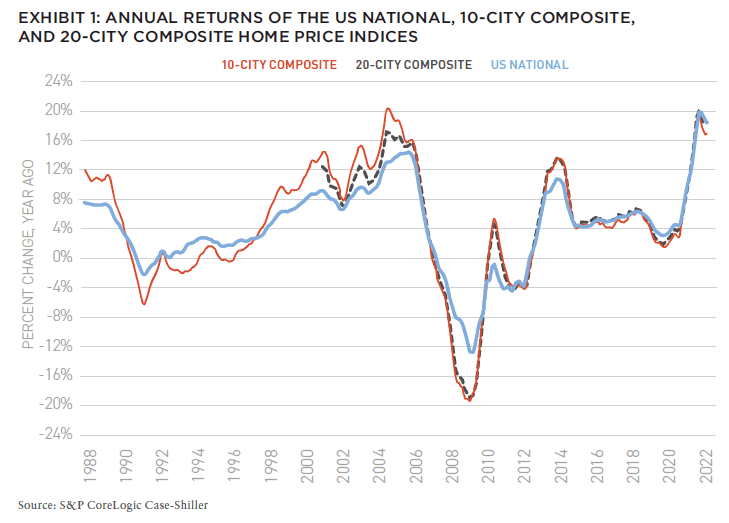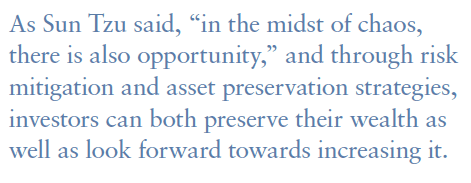In times of war, when local economies face uncertainty and instability, the need for resilient investment strategies becomes paramount.
For overseas investors, particularly those in regions affected by conflict, safeguarding assets and ensuring steady returns often requires looking beyond their borders. The US real estate market emerges as a compelling choice—a beacon of stability and opportunity amidst turmoil.
Real Estate in the US is not just a safe haven; it also represents a strategic pivot for diversifying portfolios and mitigating risks tied to local upheavals.
Israeli and Ukrainian investors, both deeply affected by regional conflicts, have demonstrated the advantages of this approach. As Israeli investors channel significant capital into American properties, they find refuge in a market characterized by robust performance, legal protections, and promising growth. Ukrainian investors, too, navigate challenges by seeking safer international investments while planning for domestic recovery.
This dynamic underscores a critical lesson: in the face of geopolitical disruption, global diversification is more than a defensive move—it’s a pathway to resilience and growth.
As conflicts reshape economies, the ability to adapt and invest in stable foreign markets, such as the US real estate sector, ensures long-term security and positions investors to capitalize on future opportunities. For those navigating the uncertainty of war, these strategies serve not only to protect wealth but also to empower recovery and optimism for the years ahead.
THE GEOPOLITICAL LANDSCAPE
Geopolitical conflicts have a significant influence on financial markets. Real estate markets are no exceptions in this regard, although the latter has been viewed as bastions of stability that can withstand economic turbulence.
With that being said, for investors situated in areas directly affected by warfare, certain risks can be tremendous, especially in regions that are prone to geopolitical instability.
The aim of this article is to explore how real estate investors in Israel and Ukraine—two countries that have had to face conflicts in recent times—adapted their strategies. By analyzing how Israeli and Ukrainian investors have adjusted their portfolios, the article seeks to show how investors managed to reduce risks, capitalize on opportunities, and show resilience when faced with uncertainty. The lessons learned can illuminate broader patterns that provide essential insights to all kinds of investors who might be facing similar challenges.
IMPACT OF CONFLICT ON REAL ESTATE MARKETS
While geopolitics and war have an effect on the real estate market, it must also be noted that the effects are not uniform. Israel is a case in point in this regard, with property values remaining relatively stable over time (and even appreciating) after periods of unrest due to returning investor confidence.

After the First Lebanon War in 1982, for example, property values increased by 28% within one year afterwards, and 16% in the subsequent year, highlighting the strength of the Israeli market.[1] Moreover, recent trends also showcase a recovery when it comes to deal activity among Israeli LPs; something that was influenced by lower costs of capital and lower tax rates.[2] On top of this, with assets under management when it comes to long-term savings growing by an average of 10% every year, thereby reaching a total of $720 billion, Israeli investors have also increased their capacity to invest in large-scale investment opportunities.[3]
The Ukrainian market, on the other hand, has faced significant challenges since Russia’s incursion into Eastern Ukraine. In 2022, transactions dropped sharply, with sales dropping to 355,100 units. In 2021, the Ukrainian real estate market recorded sales of 915,200 units, meaning that the amount of units sold declined by over 60%. Ukrainian investors have adapted their investment strategies by focusing their investments on safer regions, including in Western Ukraine, while also utilizing government support to analyze war-related risks.[4]
Generally speaking, international conflicts usually lead to a sharp rise in investor caution. When it comes to Ukraine, the conflict has had a profound impact on the banking sectors, with credit rating agencies downgrading a number of banks and considering others as being in default.[5] This has also had an impact on Ukrainian investors, who adopted a heavily cautious approach by giving priority to liquidity and safety in relation to their investments.
On the Israeli side, the phrase “when the cannons roar, Israelis buy” also shows a non-traditional behavioural approach to investing, revealing that conflicts can be seen as opportunities.[6] As Sun Tzu said, “in the midst of chaos, there is also opportunity,” and through risk mitigation and asset preservation strategies, investors can both preserve their wealth as well as look forward towards increasing it.
ISRAELI REAL ESTATE INVESTORS: ADAPTATION AND RESILIENCE
Although the Israeli real estate market has shown considerable resilience in the face of adversity, in recent years, Israeli investors have also looked towards diversifying their investments. In 2022 alone, Israeli investors invested approximately $2.3 billion in the international real estate market, with almost $1 billion of that amount being invested in the US.[7]

Popular destinations when it comes to investment in the real estate market include cities like New York City, which has been receiving renewed interest as a result of domestic economic stability and the potential for high returns.[8] Investment in the United States comes as no surprise in this context, given that the American real estate market is viewed as a safe haven asset.
This is confirmed by statistics which show that in 2021, the S&P CoreLogic Case-Shiller twenty-city home price index reported an 18% increase in one year[9] when compared to an average inflation level of 4.7%.[10] Simply put, Israelis who invested in the American real estate market in 2021 made significant average gains of over 13%, year on year.
Needless to say, Israeli investors demonstrate behaviors that are akin to corporate managers who are preparing for systematic risks. Just like managers create war chests that they can draw upon in times of need, these investors are relying on strategies which include portfolio diversification, leveraging structured credit investments, and maintaining liquidity in order to navigate periods of considerable risk and volatility.[11]
These behaviours showcase how investors are balancing short-term caution with long-term optimism, thereby enabling them to continue building on their investment momentum, notwithstanding periods of regional and global turbulence.
UKRAINIAN REAL ESTATE MARKET: CHALLENGES AND STRATEGIC RESPONSES
Russia’s invasion of Ukraine has brought with it significant disruptions to the Ukrainian real estate market, realized as reduced investor confidence as well as infrastructural damage.
Ukrainian investors have since adopted innovative strategies in order to mitigate these risks. One such strategy has been to focus on investments in Western Ukraine, which is farther away from the conflict zone than Central and Eastern Ukraine. Moreover, the Ukrainian government has also provided investors with data platforms that assess war-related risks, thereby supporting their decision-making during times of war.[12]
Ukrainian developers are also making use of discounts, installment payments, and attractive exchange rates to try to lure buyers’ confidence.[13] Meanwhile, Ukrainian firms who work in industries related to real estate are also diversifying their business, aiming to expand to international markets such as Dubai.[14] In simple terms, Ukrainian businesses and investors are being highly cautious when it comes to investments.
However, it is also important to note that investors are also being encouraged to invest in Ukraine, with the ultimate aim being to rebuild and modernize the country’s infrastructure. The European Union, for example, has set aside up to €50 billion in relation to Ukraine’s recovery, with €8 billion solely focused on strengthening private investment.[15] Moreover, various US private equity firms are engaging in impact investing in Ukraine and the surrounding region, thereby aiding when it comes to investment sentiment in the country.[16]
LESSONS FOR OTHER INVESTORS
Drawing on the experiences of Israeli and Ukrainian investors, as well as historical case studies, diversification is the key to success. Through the spreading of investments across different regions and types of properties, investors can very well hedge against the possibilities of localized risks while ensuring constant returns in stable markets.

When trouble is brewing in the geopolitical sphere, Israeli investors have shown the ability to transform chaos into opportunity. Investors are also being encouraged to keep an eye out for investing in the rebuilding of Ukraine after the war ends, especially since the country continues on its path to Westernization.[17]
Ukrainian investor behaviour, on the other hand, has been highly cautious, focusing on liquidity and safety rather than opportunity. In simple terms, whereas the Israeli investor approach is akin to the approach that the American investors took during the GFC of 2008, where they exhibited a flight to quality by buying undervalued assets that rose in value, Ukrainians are taking a more defensive approach, that is more akin to the Greek response during the Eurozone debt crisis.
However, it is also essential to note that safe-haven investments, which include the American real estate market, can be seen as a bastion of both cautiousness and opportunity, meaning that significant gains can be made in an environment which is not volatile or risky. As such, investors investing in such assets can both exhibit a flight to quality while also remaining highly cautious. At the end of the day, the most important thing that investors need to keep in mind is that their investments should help them succeed in the long term rather than for a short while. That’s not to say that there might not be opportunities in the short term. However, by focusing on resilience and preparedness, investors can strengthen their positions in the face of geopolitical disruptions.
NEW: SUMMIT #17

+ EDITOR’S NOTE
+ ALL ARTICLES
+ PAST ISSUES
+ LEADERSHIP
+ POLICIES
+ GUIDELINES
+ MEDIA KIT
+ CONTACT
WHERE ARE WE IN THE CYCLE?: OVERVIEW OF THE US ECONOMY AND REAL ESTATE SECTOR
Richard Barkham + Jacob Cottrell | CBRE
COMPELLING OPPORTUNITIES: MAKING A CASE FOR US REAL ESTATE
Karen Martinus + Mark Fitzgerald + Max von Below | Affinius Capital
OPEN WINDOW: WHY NOW IS THE TIME TO INVEST IN COMMERCIAL REAL ESTATE
Chad Tredway + Josh Myerberg + Luigi Cerreta | JPMAM
NORMALIZING MOVEMENT: POPULATION MOVEMENTS NORMALIZING AFTER COVID-19 SHOCK
Martha Peyton + Matthew Soffair | LGIM America
CHRONIC SHORTAGE: THE US HOUSING SCARCITY WILL BE LIKELY TO PERSIST FOR SEVERAL YEARS
Gleb Nechayev | Berkshire Residential Investments
FLORIDA FOCUS: PRODUCTION INDEX BELOW 50 CURIOUSLY SIGNALS OPPORTUNITY
Rafael Aregger | Empira Group
WHOLESALE CHANGE: DEMOGRAPHIC CHANGES AND STAGNANT INVENTORY CREATE NEW OPPORTUNITIES FOR RETAIL
Stewart Rubin + Dakota Firenze | New York Life Real Estate Investors
GAME CHANGE: INFRASTRUCTURE GROWTH ACCELERATING WITH AI
Jon Treitel | CBRE Investment Management
FOR THE TREES: MASS TIMBER INTEGRATION IN INDUSTRIAL REAL ESTATE
Mary Ellen Aronow + Erin Patterson + Caroline Suarez + Cassidy Toth | Manulife Investment Management
BORDER INDUSTRIAL: INVESTING IN US/MEXICO BORDER PORT INDUSTRIAL MARKETS
Dags Chen, CFA + Lincoln Janes, CFA | Barings Real Estate
RESILIENCE AMIDST UNCERTAINTY: HOW ISRAELI AND UKRAINIAN INVESTORS ARE ADAPTING REAL ESTATE STRATEGIES DURING CONFLICT
Asaf Rosenheim | Profimex
CYBER RISK VIGILANCE: HOW REAL ESTATE DIRECTORS AND BOARDS CAN GUARD AGAINST CYBER RISK
Marie-Noëlle Brisson, FRICS, MAI + Michael Savoie, PhD | CyberReady, LLC
ALTERNATE REALTY: DIGITAL RIGHTS MANAGEMENT FOR REAL ESTATE AND AUGMENTED REALITY
Neil Mandt | Digital Rights Management + Steve Weikal | MIT Center for Real Estate
DRIVING FORCE: UNDERSTANDING SYNDICATED LOANS AND MULTI-TIERED FINANCING
Gary A. Goodman + Gregory Fennell + Jon E. Linder | Dentons
HOUSING COMPLEX: CUTTING-EDGE APARTMENTS ARE A CATALYST FOR A MORE PROFITABLE FUTURE
Alejandro Dabdoub | AOG Living

NOTES
1. RenewSW “The Impact of Wars on Real Estate Prices in Israel,” RenewSW, December 10, 2023, https://renewsw.com/2023/12/10/the-impact-of-wars-on-real-estate-prices-in-israel.
2. Fund Placement Israel, FPI 2024 Benchmark Report on the Israeli LP Market, 2024.
3. Ibid.
4. Ludmila Simonova, “Ukraine War and Property Market,” RICS Property Journal, October 15, 2024, https://ww3.rics.org/uk/en/journals/property-journal/ukraine-war-property-market.html.
5. OECD, Impacts of the Russian Invasion of Ukraine on Financial Market Conditions and Resilience: Assessment of Global Financial Markets (Paris: OECD Publishing, 2022), https://doi.org/10.1787/879c9322-en.
6. Keter Advisors, “When the Cannons Roar, Israelis Buy,” Keter Advisors Blog, accessed November 27, 2024, https://www.keteradvisors.com/blog/220-When-The-Cannons-Roar,-Israelis-Buy.html.
7. Yuval Nisani, “Israelis Invested $2.3B in Real Estate Abroad in 2022,” Globes, July 4, 2023, 15:09, https://en.globes.co.il/en/article-israelis-invested-23b-in-real-estate-abroad-in-2022-1001451292.
8. Renana Mor and Kobi Lahav, “Why Are Israeli Investors Returning Now to New York?” Haaretz, June 21, 2023, https://www.haaretz.com/haaretz-labels/2023-06-21/ty-article-labels/.premium/why-are-israeli-investors-returning-now-to-new-york/00000188-dd1d-df52-a79d-dd3f04140000.
9. Christian Calusa, “US Real Estate In 2022: More Than A Safe Haven Asset,” Forbes, April 28, 2022, updated April 29, 2022, https://www.forbes.com/councils/forbesbusinesscouncil/2022/04/28/us-real-estate-in-2022-more-than-a-safe-haven-asset/.
10. Hiranmayi Srinivasan, “Historical US Inflation Rate by Year: 1929 to 2024,” Investopedia, updated November 4, 2024, https://www.investopedia.com/inflation-rate-by-year-7253832#:~:text=In%202021%2C%20the%20average%20rate,of%20inflation%20was%201.2%25.7.
11. Dimson, Elroy, et al. “Financial Strategies and Systemic Risk Under War,” SSRN, accessed November 27, 2024, https://ssrn.com/abstract=3289059.
12. Alisa Orlova, “Real Estate Market: Survival in a War-Ravaged Ukraine,” Kyiv Post, March 12, 2023, https://www.kyivpost.com/post/14161.
13. Ibid.
14. Ibid.
15. CSIS “Untapped Market: Impact Investing in Ukraine,” CSIS, October 25, 2024, https://www.csis.org/analysis/untapped-market-impact-investing-ukraine.
16. Ibid.
17. CPA Alex Sutovsky, “Israeli Companies Will Be Able to Benefit from the Hundreds of Billions of Dollars That Will Be Poured into the Restoration of Ukraine,” Globes, accessed November 28, 2024, https://en.globes.co.il/en/article-israeli-companies-will-be-able-to-benefit-from-the-hundreds-of-billions-of-dollars-that-will-be-poured-into-the-restoration-of-ukraine-1001444924.
ABOUT THE AUTHOR
Asaf Rosenheim is a Director for Profimex.
THIS ISSUE OF SUMMIT JOURNAL IS GENEROUSLY SPONSORED BY
/ EXECUTIVE SPONSOR

AOG Living is a leading fully integrated, multifamily real estate investment, construction, and property management firm headquartered in Houston, Texas. AOG Living has acquired, built, or developed more than 20,000 multifamily units with a total aggregate value of over $2.4 billion and has a growing portfolio of more than 35,000 apartment homes and 170+ properties under management throughout the nation. Learn more at aogliving.com.
Vertically integrated owner, operator, and developer of Sunbelt multifamily. Partnering with institutions on a single-asset and programmatic basis. 28k+ units acquired and developed. 62k+ units under management. 1,500+ associates. 8 Sunbelt states. To learn more, visit hrpinvestments.com and hrpliving.com. And for more information, contact john.duckett@hrpliving.com.
Affinius Capital is an integrated institutional real estate investment firm focused on value-creation and income generation. With a 40-year track record and $64 billion in gross assets under management, Affinius has a diversified portfolio across North America and Europe providing both equity and credit to its trusted partners and on behalf of its institutional clients globally. To learn more, visit affiniuscapital.com.



